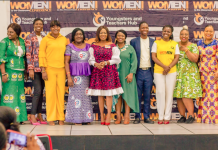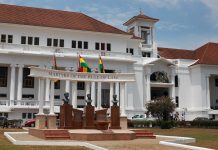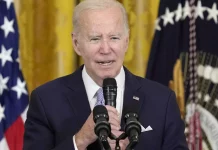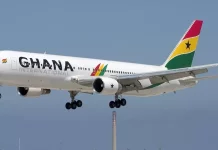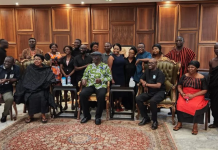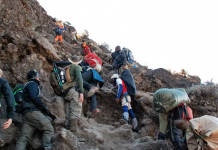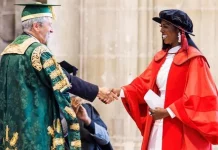Minister of Environment asserted that communities experiencing conflicts should be compensated for living with wildlife.
Zimbabwe’s government is drafting a Statutory Instrument which will direct how revenue generated from hunting quotas is allocated to the communities that bear the brunt of human- wildlife conflict.
Communities that live in areas with, or surrounded by, wildlife often have their fields destroyed while some have been injured and others unlucky to lose lives in wildlife attacks.
Since policy directs that all wildlife belongs to the State, every year, the government assigns councils or local authorities a particular quota for the number of animals that can be hunted during the annual season.
“Such a hunting quota is then put to competitive bidding so that hunters can put their bids to the council indicating the money that they are going to pay. We are looking forward to those who will be offering higher bids, their bids will be taken up by councils,” said the Minister of Environment, Climate Change, Tourism and Hospitality Industry, Mangaliso Ndlovu, in Parliament.
The Minister said, according to the Communal Areas Management Programme for Indigenous Resources (CAMPFIRE) laws, revenue from legal hunting should be shared with the community and traditional leaders.
However, there have been concerns and claims that CAMPFIRE proceeds are not really much or are misappropriated for other uses.
“What determines the cost is the bids that come. Right now, we have noted that there is a lot of competition. There is human-wildlife conflict. As the Government, we have noted that it is important to reward the people who live in such communities,” Ndlovu said, adding that the Ministry was making efforts to empower communities in areas where people coexist with animals.
“There is a Statutory Instrument that we are drafting which is going to be enacted soon which says that revenue that is generated from hunting quotas should be given to the communities because such communities are affected by the human-wildlife conflict, especially their fields and their livelihoods.”
The Minister’s sentiments come after questions have been raised about government policy pertaining to the trade in wild animals, including the pricing structure.
A Matabeleland North legislator, Lwazi Sibanda claimed that in Tsholotsho, a group of people expressed interest in buying an elephant, and were charged a price without consultation.
“However, someone expressed interest and the money that was indicated in that tender was lower than the charge that was expected by the traditional leaders and community. They were informed that the lower price was determined by Covid-19. I would like to know if it is allowed that an individual can determine the price of an elephant without consulting?” Sibanda asked, questioning if councillors could solely charge the sale of elephants without consulting the community.
In response, the environmental Minister said there is no permission to trade in wildlife. “But what happens is that if you have a place where you can look after wildlife, then the
Government determines whether you have the right place to do that. There are some people who have wildlife in their farms. They can trade if someone is interested but I have not heard of anyone who has bought elephants in rural areas,” Ndlovu said.
Ndlovu, however, noted his Ministry might need to investigate this particular incident that allegedly took place in Tsholotsho.
“This case is specific to Tsholotsho which is unique but I know that some of these issues might need further investigation so that we understand what transpired,” he said.
Source: INDEPENDENT




